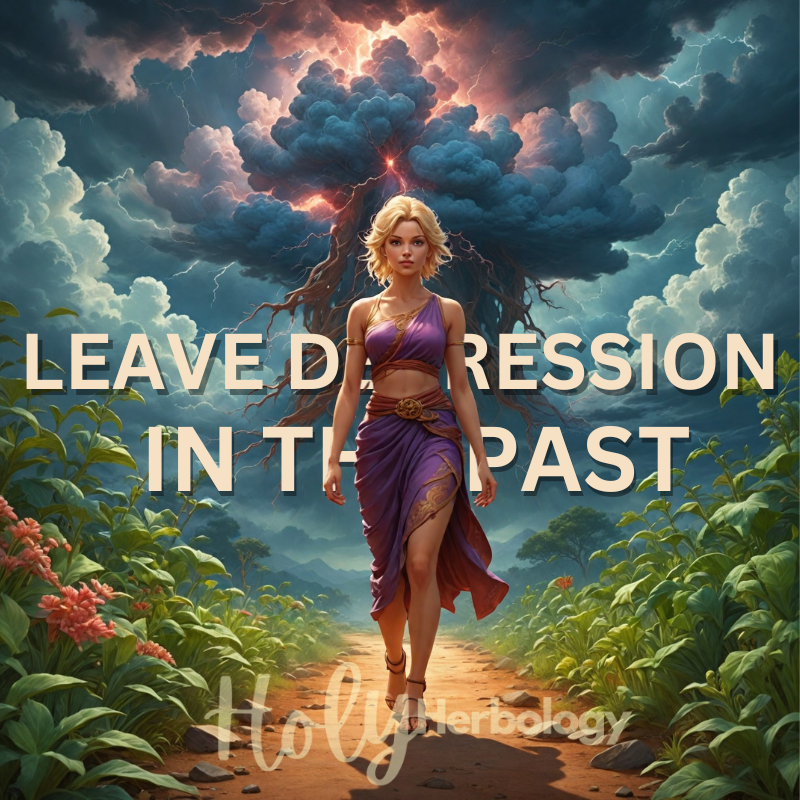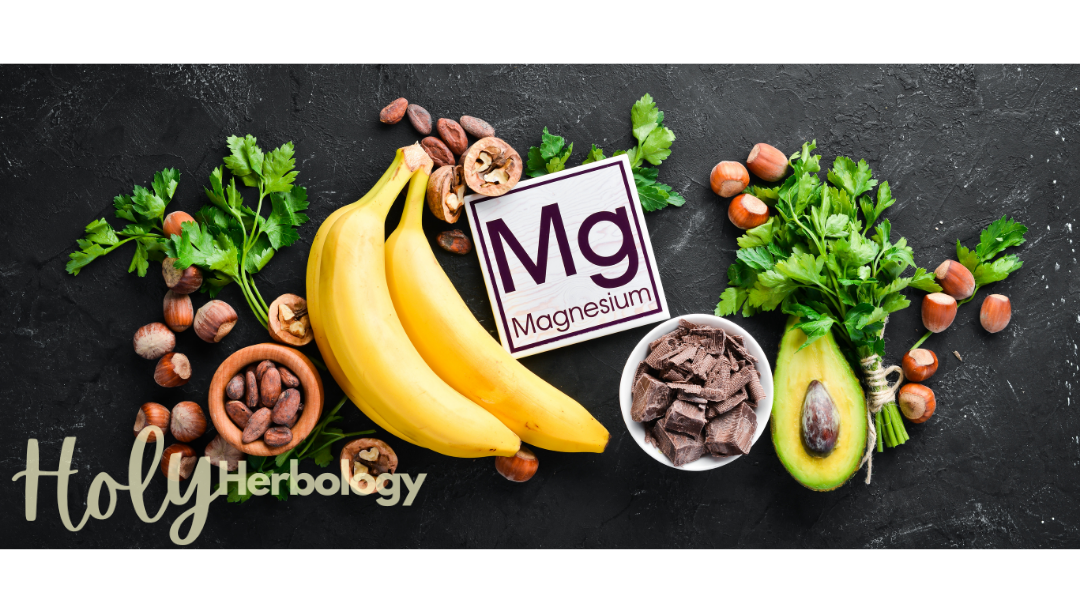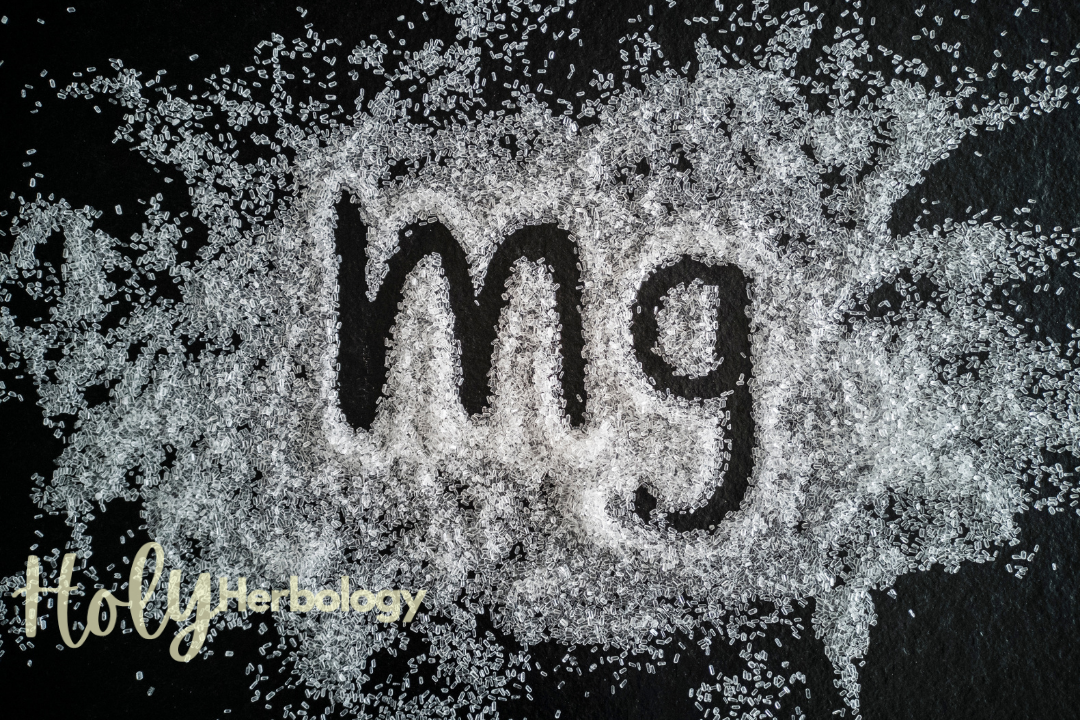
What if there was a natural remedy that could lift the dark cloud of depression in just a matter of days?
Sounds too good to be true, right? But what if the solution had been around all along, hiding in plain sight? New research on magnesium—an essential mineral often overshadowed by more popular supplements—suggests that it might hold the key to rapid recovery from major depression, a mental health crisis affecting millions worldwide.
For years, treatment of depression has gone hand in hand with a number of antidepressant drugs, most of which take weeks before the onset of their action and have a plethora of side effects. But what if one could feel better as early as 24 hours? The question now would be if magnesium is the missing link in treating ailments of mental health like depression. Let’s dive into the science for a find.
A Global Epidemic: The Silent Suffering of Depression
Depression is more than just a bout of sadness. It’s a debilitating mental disorder that steals joy, motivation, and hope. Millions of people across the globe suffer from major depression, marked by a deep sense of inadequacy, pessimism, and, in some cases, suicidal thoughts. Unfortunately, many don’t find relief through traditional antidepressants.
The World Health Organization estimates that depression is a leading cause of disability worldwide and is expected to rival heart disease as the most common ailment by 2020. With medications for antidepressants taking weeks to achieve their effects, and with questions regarding their effectiveness and safety-especially in children and young adults-a new solution is desperately needed. And here is where magnesium takes center stage.
Magnesium Deficiency: The Hidden Culprit Behind Depression
Most people don’t think much about magnesium. But what if I told you that magnesium deficiency might be responsible for many cases of major depression and related mental health disorders?
Magnesium modulates biochemical reactions in the brain. It reduces neuronal calcium flow and inhibits nitric oxide production, and these are two processes critical for the maintenance of proper cerebral function. Low levels of magnesium result in neuronal damage, which can then lead to depression, anxiety, and a host of other neurological problems. Yet, despite being safe, widely available, and effective, as with most nutrients, it is rarely used as a treatment.
Think about this for a moment: only 16% of the magnesium in whole grains remains in the refined flour we commonly consume today. Most drinking water supplies no longer contain magnesium either. This widespread deficiency may be a key factor in why depression has skyrocketed in recent decades. Without enough magnesium, our brains are left vulnerable to the damaging effects of stress, dietary imbalances, and environmental toxins.
The Proof: Rapid Recovery from Depression Using Magnesium
Now, here’s the breakthrough. In a recent study, patients suffering from major depression experienced life-changing improvements in just a matter of days after beginning magnesium supplementation.
One case involved a 59-year-old man with a long history of mild depression, who suddenly developed severe suicidal ideation, anxiety, and insomnia after a stressful year. Traditional antidepressants failed him. However, after just one night of starting magnesium supplements (125–300 mg of magnesium glycinate and taurinate with each meal and at bedtime), his sleep returned to normal, and within 4 days, his depression and anxiety had drastically reduced.
Let that sink in—4 days. Compare that to the weeks, sometimes months, it takes for traditional antidepressants to show even mild improvements. These rapid results are not just a fluke. Many others have reported similar outcomes when using magnesium to combat depression, anxiety, irritability, and even memory loss.
How Modern Life is Making Magnesium Deficiency Worse
You might be wondering, how did we get here? Why are we all so deficient in magnesium? The answer lies in modern life.
Over time, our diets have shifted away from magnesium-rich foods like leafy greens, nuts, seeds, and whole grains. To make matters worse, stress, which depletes magnesium levels, is at an all-time high. Add to this the fact that we live in a world where drinking water is stripped of minerals, and you’ve got a recipe for widespread magnesium deficiency.
In fact, it’s estimated that up to 70% of Americans don’t get enough magnesium in their daily diets. This is a crisis in itself, considering magnesium’s critical role in over 325 enzymatic reactions, many of which are connected to brain function. Without enough magnesium, our bodies can’t function properly, leading to symptoms like depression, anxiety, and fatigue.
How Can Herbs Help?

The Power of Nature’s Remedies
At Holy Herbology, we believe in the power of herbs to complement natural treatments like magnesium. If you’re looking to boost your mental health naturally, here are a few herbs that work synergistically with magnesium:
- Ashwagandha (Withania somnifera): An adaptogen that helps balance stress hormones and supports mental clarity. Combined with magnesium, it can create a powerful anti-stress effect.
- Rhodiola Rosea: Known for its ability to reduce fatigue and improve mental performance, Rhodiola can enhance magnesium’s mood-stabilizing effects.
- St. John’s Wort (Hypericum perforatum): A traditional remedy for mild depression, it’s often used to enhance serotonin levels, which can work alongside magnesium to improve mood and emotional resilience.
- Holy Basil (Ocimum tenuiflorum): Tulsi helps reduce anxiety and mental fatigue, offering a calming effect that pairs well with magnesium’s brain-supporting benefits.
Incorporating these herbs into your routine can amplify the healing power of magnesium, providing a holistic approach to mental wellness.
Did You Know? The Stunning Role of Magnesium in Depression
Here’s where the science gets truly fascinating. Did you know that 100 years ago, depression was rare, especially in younger people?
According to historical records, only 1% of Americans born before 1905 developed depression before the age of 75. Fast forward to today, and the numbers have skyrocketed. People born in 1955 and beyond are 6 times more likely to develop depression at a much younger age. The common factor? Magnesium deficiency.
As our diets shifted toward refined, processed foods, we inadvertently stripped away the vital nutrients our bodies need to function properly. Magnesium deficiency has been linked not only to depression but also to a host of mental health issues, including anxiety, insomnia, and even IQ loss.
Here’s the kicker: modern studies are now suggesting that fortifying our food and water with biologically available magnesium could drastically reduce the rates of depression and other mood disorders. Imagine a future where a simple mineral could restore mental health for millions of people worldwide. It’s not just a possibility; it’s a reality we’re on the brink of discovering.

Types of Magnesium Supplements: Which Ones Work Best?
When incorporating natural cold and flu remedies into your wellness routine, it’s also important to consider how your body absorbs and utilizes key nutrients. Magnesium is one of those vital minerals that supports many bodily functions, including immune health. However, not all magnesium supplements are created equal. Here’s a breakdown of the most common types of magnesium supplements, and which ones are most effective.
1. Magnesium Citrate
- Effectiveness: Magnesium citrate is one of the most popular and highly absorbable forms of magnesium. It’s commonly used to improve digestion and relieve constipation but also provides overall immune and muscle support.
- Best For: Digestive issues, boosting magnesium levels quickly, and aiding in detoxification.
2. Magnesium Glycinate
- Effectiveness: Magnesium glycinate is well-absorbed and gentle on the stomach. It’s ideal for people looking to improve magnesium levels without the laxative effect that some forms can cause. This form also promotes relaxation and better sleep, both important during illness.
- Best For: Sleep support, stress reduction, and boosting immune function without digestive side effects.
3. Magnesium Oxide
- Effectiveness: Magnesium oxide is less bioavailable than other forms, meaning your body absorbs it less effectively. It’s primarily used as a laxative due to its low absorption rate and is not the best option for improving overall magnesium levels.
- Best For: Occasional constipation relief but not ideal for long-term supplementation or immune support.
4. Magnesium Malate
- Effectiveness: Magnesium malate is highly absorbable and excellent for people with chronic fatigue or muscle pain. It supports energy production and reduces muscle soreness, making it a good option if you’re feeling run down during cold and flu season.
- Best For: Supporting energy levels and reducing muscle pain.
5. Magnesium Threonate
- Effectiveness: This newer form of magnesium is known for its ability to cross the blood-brain barrier, making it ideal for cognitive health. It may not be as effective for immune support but is beneficial for brain function.
- Best For: Cognitive function and memory support, but not essential for cold and flu recovery.
6. Magnesium Chloride
- Effectiveness: Magnesium chloride is well-absorbed and often used topically in the form of magnesium oil sprays or bath salts. It’s good for overall immune support and can also soothe sore muscles and joints during illness.
- Best For: Topical use for muscle recovery and boosting magnesium levels through the skin.
7. Magnesium Taurate
- Effectiveness: Magnesium taurate is often used for heart health and supporting normal blood pressure levels. While it’s not specifically targeted at cold and flu recovery, its calming effect on the heart and circulatory system can aid overall wellness.
- Best For: Cardiovascular health and supporting calmness during illness.
8. Magnesium Sulfate (Epsom Salt)
- Effectiveness: Magnesium sulfate, or Epsom salt, is primarily used for external use in baths to soothe sore muscles and reduce inflammation. It’s not typically recommended for oral supplementation.
- Best For: Muscle relaxation and detoxification when added to a bath.
Which Magnesium Supplement Should You Choose?
For immune support during natural cold and flu remedies, magnesium glycinate or magnesium citrate are your best options. Both forms are highly absorbable, gentle on the stomach, and support overall wellness without digestive issues. If you’re looking to support your body’s natural defenses, adding the right magnesium supplement alongside natural remedies can help keep you healthy and resilient.
The Power is in Your Hands
Depression may feel like an inescapable storm, but with the right knowledge, you can take control of your mental health. Magnesium is a powerful tool that has been hiding in plain sight, and now we have the science to back it up. Whether you’re struggling with major depression or simply looking to improve your overall mental wellness, magnesium—paired with the right herbs—could be your answer.
We believe at Holy Herbology that nature has the power to heal. That’s what we are here for, to give you the resources, recipes, and remedies that guide you down your path toward a healthier existence. Keep in mind that Knowledge Is God, and sometimes just understanding something as simple as magnesium might be the key to transforming your life.
So, what’s your next step? It could be as simple as adding magnesium-rich foods to your diet or exploring the incredible power of natural herbs. Whatever you choose, just know that the path to healing is closer than you think.
If you would like to receive exciting recipes that could help increase your magnesium levels, let us know in the comments. Thanks for reading and we’ll see you soon.


Pingback:Why We Say "Knowledge Is God" at Holy Herbology